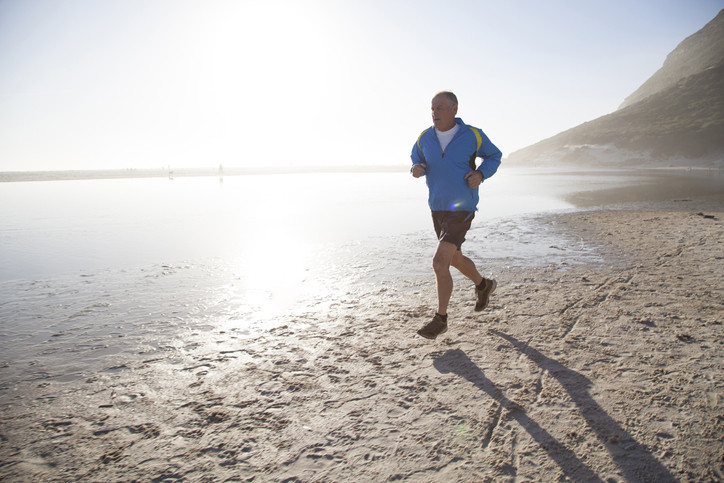Exercise helps counter anxiety from active surveillance
In the journals
- Reviewed by Howard E. LeWine, MD, Chief Medical Editor, Harvard Health Publishing; Editorial Advisory Board Member, Harvard Health Publishing

Many men with low-risk prostate cancer who follow active surveillance (the wait-and-see approach) experience ongoing stress and anxiety about their condition. Now, a study has shown that exercise — in this case, high-intensity interval training (HIIT) — can help men control these emotions. In the study, 52 men on active surveillance for prostate cancer filled out questionnaires about their fear of cancer progression, quality of life, and emotional health. Next, half of the men did 12 weeks of supervised HIIT training while the other half did not exercise.
The exercisers worked out on a treadmill three times a week, alternating periods of low-intensity walking with high-intensity jogging five to eight times over a 30-minute session. Compared with the people who didn't exercise, the HIIT participants reported significant improvement in anxiety, stress, and self-esteem.
It's unclear how the HIIT workouts specifically helped, but the researchers had a few ideas. They speculated that regular exercise let the men feel they were doing something to prevent their cancer from progressing. Accomplishing a challenging program like HIIT also may have boosted their self-esteem and strengthened their body to better tolerate stress.
More trials are needed. Still, the results offer evidence about how exercise can provide mental health benefits as well as physical ones. The study appeared in the April 2022 issue of The Journal of Urology.
Image: © Alistair Berg/Getty Images
About the Author

Matthew Solan, Former Executive Editor, Harvard Men's Health Watch
About the Reviewer

Howard E. LeWine, MD, Chief Medical Editor, Harvard Health Publishing; Editorial Advisory Board Member, Harvard Health Publishing
Disclaimer:
As a service to our readers, Harvard Health Publishing provides access to our library of archived content. Please note the date of last review or update on all articles.
No content on this site, regardless of date, should ever be used as a substitute for direct medical advice from your doctor or other qualified clinician.
















